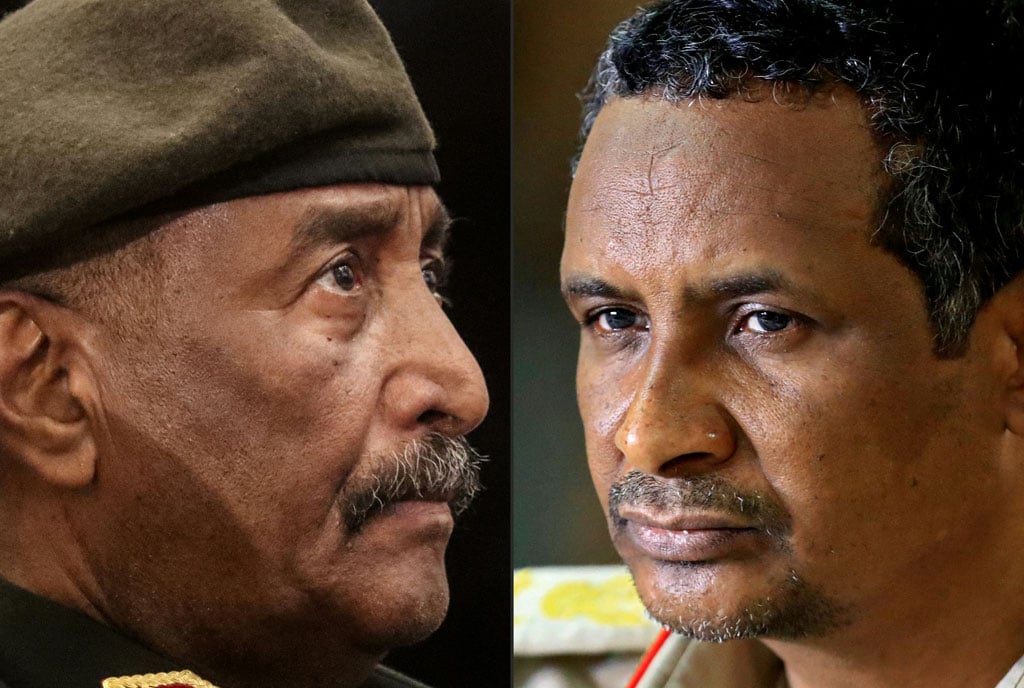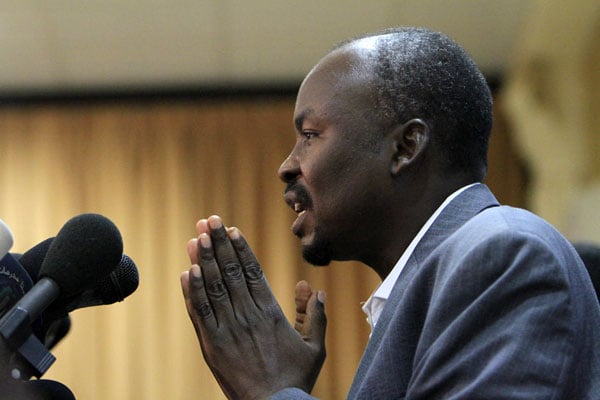Prime
How Uganda rescued 211 nationals from Sudan fighting

Some of the 211 Ugandans disembark a Uganda Airlines plane on April 27, 2023 at Entebbe Airport after they were successfully evacuated from conflict-hit Sudan. PHOTO/HANDOUT
What you need to know:
- Initially, the evacuees were expected to land in Uganda at 5pm yesterday but delayed due to technical glitches.
- Over 80 Ugandans did not travel because of medical reasons.
At least 211 Ugandans who were trapped in conflict-hit Sudan arrived at Entebbe Airport during wee hours on April 27 from Ethiopia's Bahir Dar Airport, government has said.
The evacuees, who included diplomats, students, and business expatriates, reached Entebbe aboard a Uganda Airlines plane at around 2am accompanied by External Security Organisation (ESO) director general, Ambassador Joseph Ocwet.
In Sudan, a power struggle between army chief Gen Abdel Fatah al-Burhan and his deputy-turned rival, Gen Mohamed Hamdan Dagalo alias Hemedti, began on April 15.

This combination of file pictures created on April 16, 2023, shows
Sudan's Army chief Abdel Fattah al-Burhan (L) in Khartoum on December 5, 2022,
and Sudan's paramilitary Rapid Support Forces commander, General Mohamed Hamdan Daglo (Hemedti), in Khartoum on June 8, 2022. PHOTO/AFP
Since the fighting started, hundreds have been killed and thousands displaced.
The Ugandan government had previously disclosed that 300 Ugandans had been trapped in Sudan, following the civil war.
After the direct involvement of President Museveni, preparations were made to evacuate the stranded Ugandans, starting with those in Khartoum where the fighting had intensified.
Sources said the entire evacuation initiative was spearheaded by President Museveni with support from the Sudanese government, and the Ugandan embassy staff in Khartoum.
“The President showed considerable care about the welfare and safety of Ugandans. He has been seeking daily updates and making assurances about the need to ensure the safety of Ugandan citizens,” Dr Rashid Yahya Ssemuddu, Uganda’s ambassador to Sudan told Monitor on Tuesday.
President Museveni directed the relevant authorities to start the evacuation process from the greater conflict area of Khartoum.
He started by asking ESO chief Ocwet to work with Kampala's embassy in Khartoum to mobilise Ugandans and later evacuate them “safely”.
“So, Ambassador Ocwet, the director general ESO together with Brig Gen Frederick Karara (defence attachè) began to mobilise Ugandans in Khartoum mainly through telephone and WhatsApp groups. Good enough, the majority of Ugandans in Khartoum have leadership,” Mr Ofwono Opondo, the government spokesperson, told journalists in Kampala on Tuesday.
All trapped Ugandans, according to Mr Opondo were then mobilised to assemble at the University of Africa in Khartoum, where majority of the students are while the working group were brought to the embassy.
Ambassador Ocwet, and Brig Karara then organised buses to transport Ugandans towards the border of Ethiopia, in the east.
On Sunday evening, four hired buses filled with 208 rescued persons set off from the embassy’s compound located at the Garden City, in Khartoum for a 761km journey to Ethiopia.

Ugandans standing in front of one of the buses that evacuated them from the Khartoum Embassy to Ethiopia. PHOTO/COURTESY
Prior to this journey, which lasted 12 hours and 45 minutes, the ambassador together with other officials shared a light moment with some of the evacuees and took pictures.
Their journey was, however, kept a secret until Monday afternoon when they had safely left Khartoum.
The buses arrived at Garabati, a Sudanese border with Ethiopia on Tuesday morning.
Change of airport
As the evacuees were about to arrive at the Garabati border, authorities realised that Gondor Airport was small and could not accommodate Uganda Airlines’s Airbus.
Authorities thereafter decided that the evacuees should go to Bahar Dar Airport, which is in the northern part of Ethiopia. By this time, the evacuees had arrived at the border awaiting clearance so that they could proceed to Bahar Dar Airport.
“When we realised that Gondar Airport was more of a domestic airport and it couldn’t qualify to handle big planes, we took a decision to change the route to this airport of Bahar Dar,” Ambassador Ssemudu said.
According to the arrangement, the evacuees were expected to arrive home at 2pm on Tuesday, but it was, however, not possible.
“We failed to get a flight clearance to Bahar Dar Airport and they decided to fly from Addis Ababa tomorrow (today). I am confident that we shall make it,” Dr Ssemuddu told this publication on Tuesday.

In this image grab taken from handout video footage released by the Sudanese paramilitary Rapid Support Forces (RSF) on April 23, 2023, fighters wave assault rifles as they cross a street in the East Nile district of greater Khartoum. PHOTO/AFP
New arrangements were made and the evacuees set off from Garabati border to Addis Ababa where a Ugandan Airlines plane would find them.
Government later got clearance from Addis Ababa and the Uganda Airlines plane finally picked the Ugandans.
Initially, the evacuees were expected to land in Uganda at 5pm yesterday but delayed due to technical glitches.
Meanwhile, over 80 Ugandans did not travel because of medical reasons.
Evacuees from Sudan
•A total of 211 passengers were evacuated on a Uganda Ailrines flight.
•The 211 Ugandans include 116 students, 19 Muslim pilgrims who were trapped on their way to Mecca and those who were working in Khartoum.




